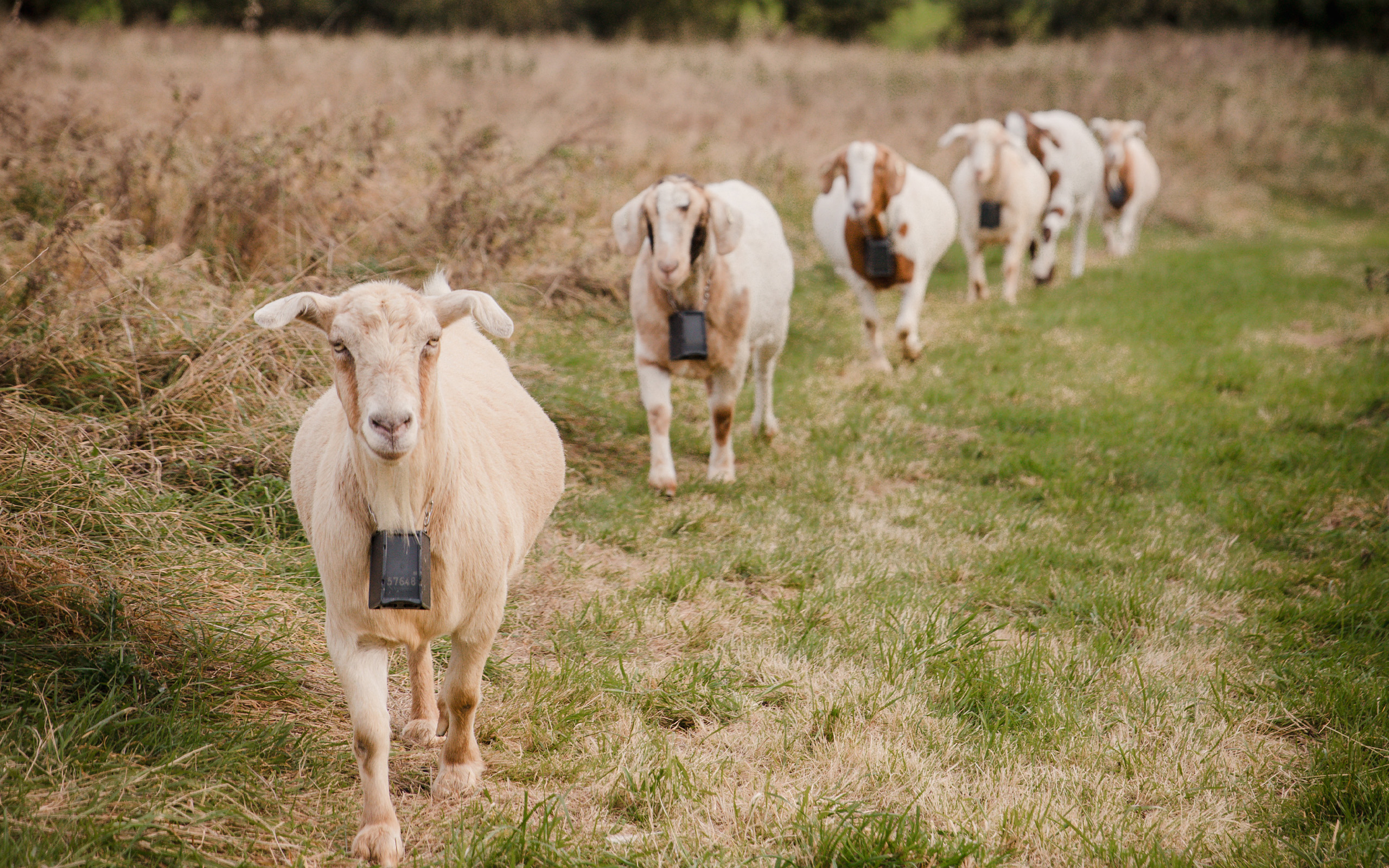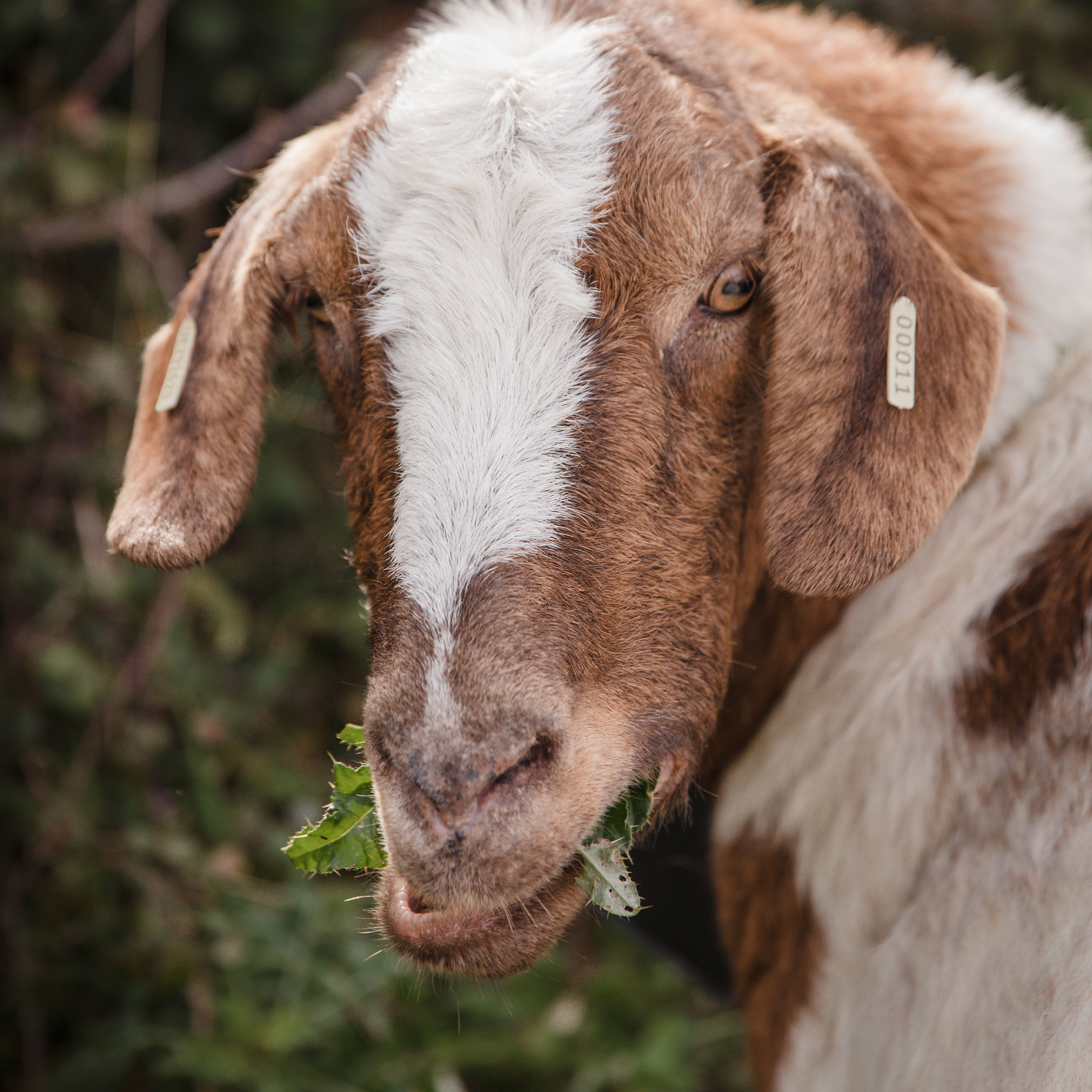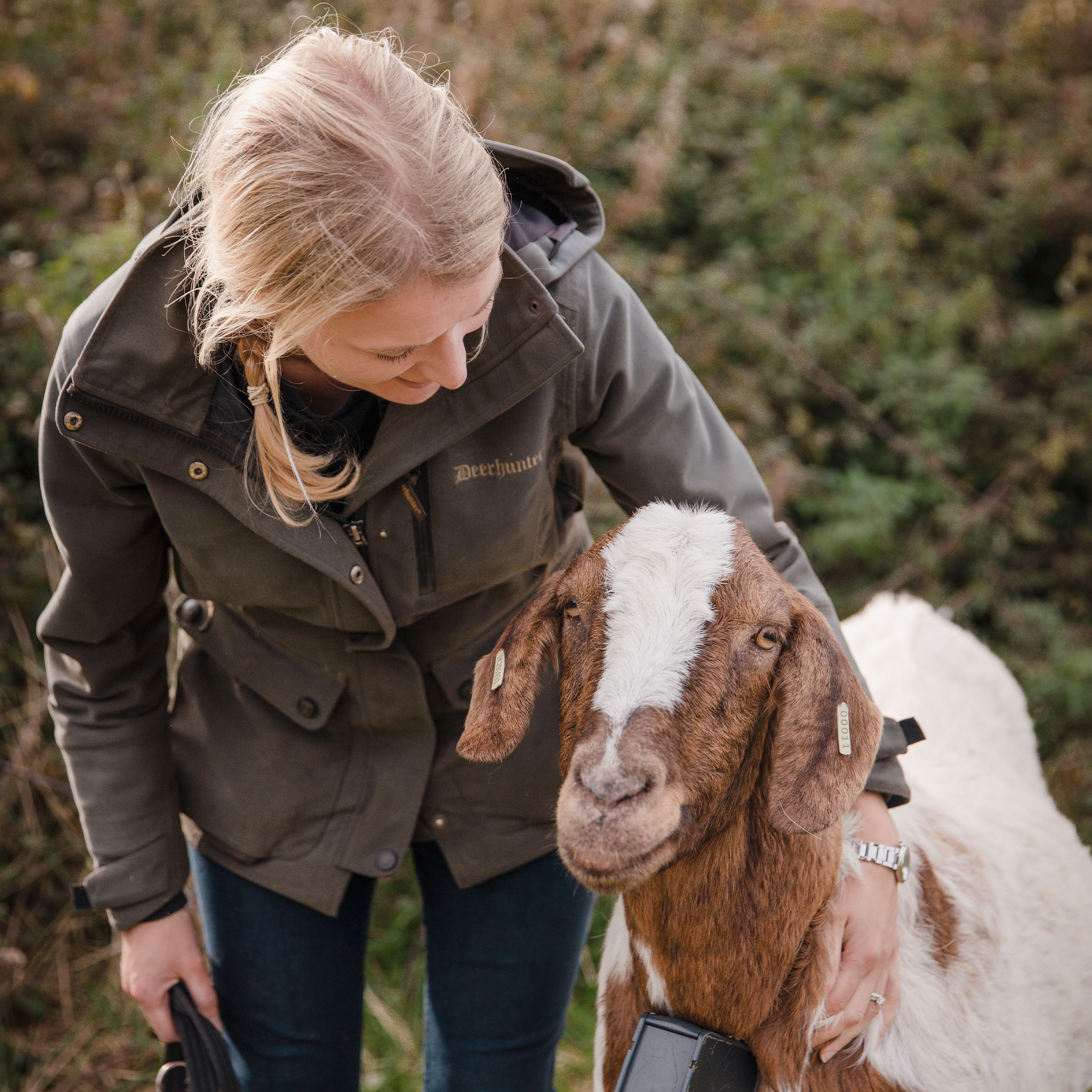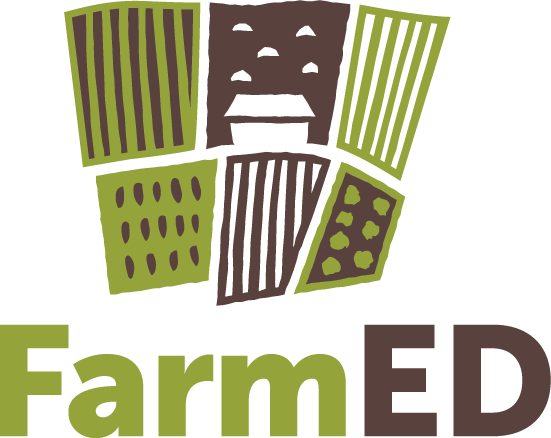Conservation Grazing with Goats
Jan 28, 2025

A herd of six goats arrived at FarmED last year. They’re owned by our Agricultural Lead, Kate Henderson, who describes goats as ‘brilliant animals’ and is leading the Goats for Beginners course at FarmED at the beginning of March.
There are breeds of goat that are more suited to meat production and others that are better for milk production. The goats at FarmED are dairy-meat crosses but their role on our farm is conservation grazing, which is becoming an increasingly important reason to keep goats.
‘Even though we call it conservation grazing, one of the great benefits of goats is that they actually browse rather than graze,’ Kate explains. ‘They prefer higher up vegetation, so anything that's thorny, like thistles, nettles, hawthorn or blackthorn. Basically the goats will go for anything that’s spiky and unappetising that other animals like sheep and horses will leave behind. Other livestock might eat brambles and thistles if they're desperate, but they won't go for them straight away, whereas the goats will usually preferentially go for the thistles before they eat the grass, which is really useful.’

Happily eating the thistles.
At FarmED the goats are browsing the rougher land in the natural flood management and below the orchard that’s been left to grow wild over the years, Kate explains. 'It’s got to that stage where we’re getting a lot of rushes and thorn bushes and different ecologists have said that some disturbance would be beneficial to prevent everything growing at the same level. If there’s a dominance of hawthorn and blackthorn then nothing else can really grow through. Without overgrazing, the goats are opening up areas so new growth can come through in the spring.'
For the last two years, Kate’s goats have worn Nofence collars. Kate draws a virtual fence on an app on her phone and if the goats get too near to where the virtual fence is, it triggers a sound from the collar which increases in pitch. If the goats ignore five warnings, they get an electric shock. This rarely happens because they recognise the first sound now and know to turn around.
‘There's a way of training them,’ Kate says. ‘You set up a special training paddock so the goats learn quickly. They’d probably get more shocks off an electric fence because they'd constantly be trying it out to see where the weak points are. It also means you can see exactly where they are in the field, so you can go straight to them to check them. The app gives you notifications if there's one animal that's not with the rest of the herd or not moving about enough, which is great for peace of mind.’
The FarmED goats move around their designated area each day. They've got a shelter, which is important for goats because their coats aren't waterproof so they get rain scald quite easily. In the wild, they'd be in mountainous areas with caves and shelters, or in dry, desert areas. Some breeds live on exposed places like the Welsh mountains but Kate has found that if her goats haven't got a shelter, their feet tend to get infected if they're out in the mud too often, and they get rain scald on their backs. When it's really frosty or snowy, she gives them a bit of hay, but apart from that, they can fend for themselves.
Kate’s first goats, Bracken and Bramble, arrived twelve years ago. Kate was helping a friend out during lambing season and the neighbouring farm had just started up a goat dairy but had a surplus of kids because there were too many triplets born that year. Kate took a couple and bottle fed them. Every year she’d send them ‘on holiday’ for six weeks to another farm that had a billy goat (a meat goat) to get them in kid. She’d keep the females and sell the males to be fattened for meat. One of the goats in Kate’s herd is a castrated male called Billy. He was meant to go for meat but ‘ended up being the cutest, friendliest goat’. ‘I was too sentimental,’ she says. ‘So he stayed in the herd and he's everyone's favourite.’

Kate and Billy.
This is the thing about goats. They’re very endearing. When asked why people might want to keep goats, Kate explains how their personalities are closer to dogs. ‘They're very loyal. It’s hard to herd goats, as you do with sheep because they tend to follow a human. They like attention. If you want to move them from one place to another, you walk and lead and then they will follow. Bracken is the boss of the herd and she likes to show people she’s the boss. She’s lovely to me, but not quite so lovely to everyone else.’
Goats are also very cheeky, mischievous and notorious for escaping. 'They'll find their way through every gap, over or under any fence,’ says Kate, who was unable to stop her goats from escaping until she equipped them with the Nofence collars. ‘They have a habit of climbing on cars. They absolutely love a car to run up the bonnet and slide down the windscreen.’
While pygmy or dwarf goats can be kept as pets, Kate stresses that keeping goats requires a certain level of expertise.
There are so many health conditions you need to look out for, including nutritional deficiencies. If you’re thinking of getting goats you need to make sure you've got experts on hand to give you advice. You’ll also need things like a holding number and herd number and complete movement licences if you want to move them anywhere.’
Complete novices can come along to the Goats for Beginners course at FarmED and will leave feeling like they can take the first steps into being a goat owner. ‘We will be looking at things like what breed of goat is best for you, what you want them for, what would suit your situation and where to get them from,’ Kate says. 'We will also cover the infrastructure you need, like fencing, water, shelter, how much land, and how to look after them.’
Participants will get the chance to meet Bracken, Billy and the rest of Kate’s goats. ‘One of the things we'll be doing in the field is foot trimming, which is really important for goats. We’ll be looking at the structure of the goat's foot as well as how to spot nutritional deficiencies, how to know when the animal isn't feeling well and what to do about it, when you can use your goat first aid box and when to call the vet.’
‘I wouldn't be without goats,’ Kate says. ‘But they can be a lot of stress if you haven't got everything in place for them. The amount of phone calls I used to get when the goats escaped and they’d eaten someone's prize roses, or their washing. It's just a case of making sure everything's in place for them and you know what you're doing and then they are lovely to be around.’
Recent news items




